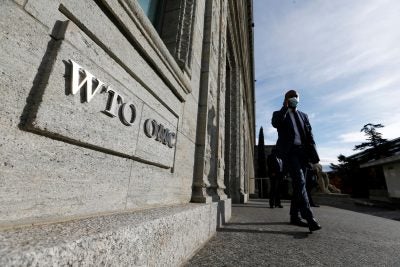We look at the effect of the WTO on stabilizing international trade using both a fixed-effects and an event study approach. Our results show that WTO members experience lower trade volatilties in a predictable and integrated system. In addition, we focus on the trade volatility comovement among countries in a multilateral framework. Previous research has mainly focused on WTO membership in a bilateral trade framework, which only allows interactions between two trade partners without considering any possible influence from other countries. A bilateral trade framework does not fully capture the effect of WTO membership, nor does it investigate why the multilateral platform of the WTO should exist. With a unique setup estimating interactions among multiple trading dyads, we find strong evidence supporting positive correlation or comovement of trade volatilities across trading pairs. Such a comovement appears much stronger among WTO members than between WTO and non-WTO members. Due to the feedback mechanism among dyads in a multilateral framework, such as the WTO, bilateral trade stability may further stabilize the global trade. Our results remain robust to a battery of sensitivity checks.
the-role-of-multilateralism-of-the-wto-in-international-trade-stabilityTo read the full report from the Cambridge University Press, please click here.

